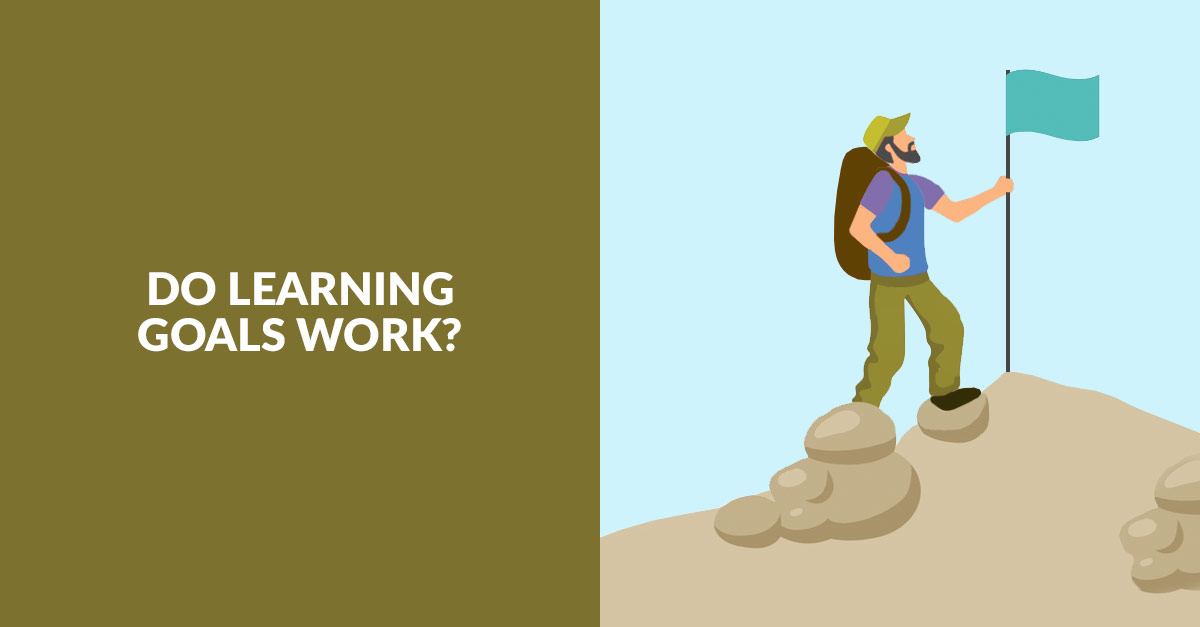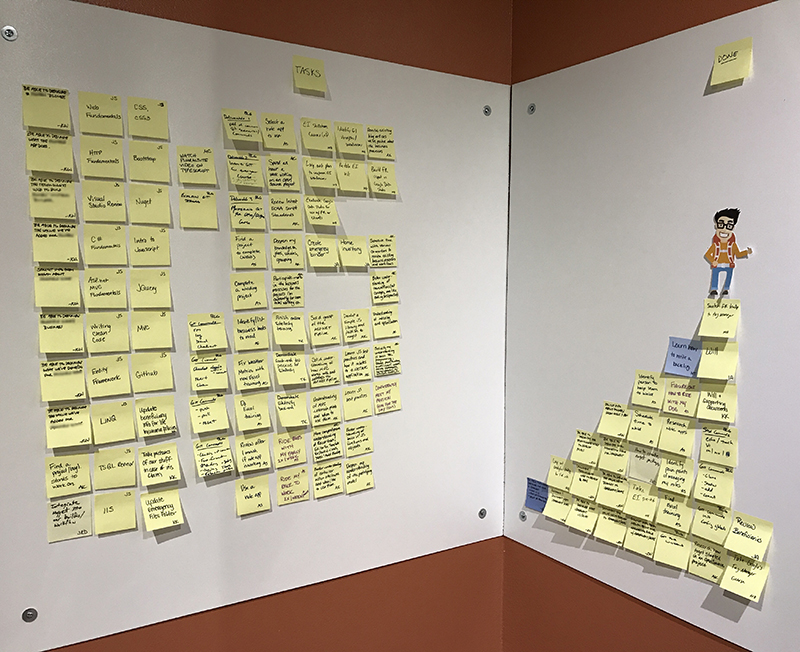
Earlier this year, I introduced you to the idea of using learning goals as a means of encouraging
personal and professional growth within the Far Reach team. It’s been about 6 months since I brought the idea to our team, so I thought I’d check in and get their thoughts on this new approach to see what I could learn.
Who Participated?
Approximately 75% of the team decided to create learning plans for themselves. I’m really pleased with this, given it’s a new initiative. There’s a nice cross-section of the team represented in this group, too—marketing, UX design,
product owners, scrum masters, business strategists, developers, and partners are all represented.
I got feedback from one person—Chris—who didn’t draft a learning plan. He has goals, but they’re in his head. Writing them down would be helpful, he said. But, thus far, he hasn’t made it a priority. He admitted being confused
and overwhelmed at first and, given my own experience, described below, I can see why he was uncertain how to go about it.
What Were Our Goals?
Most team members undertook work-related goals, but a couple of individuals set out to tackle personal goals that had been collecting dust for too long.
Developers tended to focus on gaining or honing their skills in specific technologies and best practices, which makes a lot of sense. Others addressed perceived deficiencies in knowledge of the tools they use in their jobs (e.g., Excel). Some set out
to tackle less concrete things like developing leadership skills, improving emotional intelligence, or just learning the ins and outs of their jobs if they’re new to the team.
How’s It Going?
Those with goals related to the work they do reported good progress and commented that it helps to have practical applications for their learning goals. Other, less tangible goals, like building leadership skills or emotional intelligence appear to have
been harder to keep up with. Team members who set personal goals reported progress is being made, though slower than expected in some cases.
It hasn’t been all smooth sailing. Some team members indicated their progress has stalled due to work and personal schedules over the summer and, in at least one case (mine), efforts have stalled due primarily to a lack of motivation.
Reflecting on my personal lack of motivation, I realized the goals I set for myself weren’t learning goals at all—they were performance goals. I can either do them or I can’t. So, while I met the first goal I set for myself, subsequent
goals have been a struggle to meet. I realized that, while I tried to structure my goals as learning goals, they really just involve memorization and regurgitation. There’s little creativity involved.
This lends credence to the idea that learning goals result in better outcomes than performance goals, which, I suppose, makes my experience worthwhile. My initial failure will also help me better support the team in setting and reaching their own learning
goals going forward.
How Was the Experience?
When I asked team members how this experience has differed from other goal-setting experiences they’ve had, some said it was similar, while others noted clear differences.
Kelly thinks these goals feel less tangible. She’s used to setting goals with clear objectives like read one book per month or schedule one “date night” with each of her kids each month. With her learning plan, her
goals instead involved completing a list of tasks.
Tyler finds that focusing on being able to demonstrate what he’s learned—a key idea of learning goals—helps him be more intentional and focused as he makes a concerted effort to share what he’s learned with others.
Michael, Brian, and James enjoy the flexibility this approach offers. Less formality and more freedom to choose goals that are meaningful to them helps motivate them to follow through.
For Marco, the opportunity to use new technologies in the projects his team has been working on has allowed him to continually learn, and to add value to the team and our clients at the same time.
Jen appreciates the support and advice from others with whom she has shared her goals. It helps her feel like she’s not in it alone, which she finds motivating.
On the flip side, Megan and Adam indicated the experience hasn’t been much different from their previous goal-setting experiences.
The Bottom Line—Has it been valuable?
For those who undertook a learning plan, all but one indicated it has been a valuable experience. Our outlier, Megan, pointed out that she’s always been a learner and the use of a documented plan hasn’t really help her.
I think for the others, learning plans have been an opportunity to be more deliberate about what they want to learn and how to go about it. And, as Adam so eloquently put it, “Learning goals are important, even if it just brings awareness to ourselves
that we have a desire to be better, to understand more, to continue learning. Goals, hopefully, help us cultivate that awareness and incorporate it into our lifestyles. Even if it's a little bit at a time. I always come back to the idea that time
is going to pass regardless of what we're doing. Ten minutes a day of something that seems trivial or "not enough" adds up when you take into account months and years.”
Well said, Adam.
Personally, my failure to undertake true learning goals has provided me with insight into their value precisely because I feel like I missed out on the benefits. I’ll do better going forward and will be a better resource for the team as a result.
Regardless of whether we all followed the guidelines, I’m happy to hear the vast majority of us has gotten something positive out of it so far. This tells me that learning goals do indeed work.
What Did I Take Away?
I learned a lot from the team’s feedback on their experiences with learning plans, as well as from my own (albeit belated) reflection.
So, even though the team has already experienced the benefits of learning goals, there’s more I can do going forward to make them even more valuable, including:
- Providing better guidance around what does and doesn’t constitute a learning goal. (Never fear, Chris. Help is on the way!)
- Strongly encouraging people to document their plans to help keep themselves accountable.
- Encouraging team members to keep their goals simple and relatively small so they don’t get overwhelmed and feel paralyzed. Better to have more small goals and see continual progress than have one huge goal and feel like you’ll never get
there.
- Reflecting more frequently on my own progress and encouraging others to do the same.
- Providing more clarity on company goals so those who want to can more easily tie their individual learning goals to them.
- Encouraging team members to share their learning plan progress (or lack of it) more frequently with the rest of the team to, hopefully, motivate those on the fence to take the leap.
- Being more deliberate about monitoring our goals board and recognizing the progress made.

Thanks for coming back to read about our learning goal journeys. If you’ve used learning goals to increase your performance and personal satisfaction, we’d love to hear about your experience. Please
reach out!